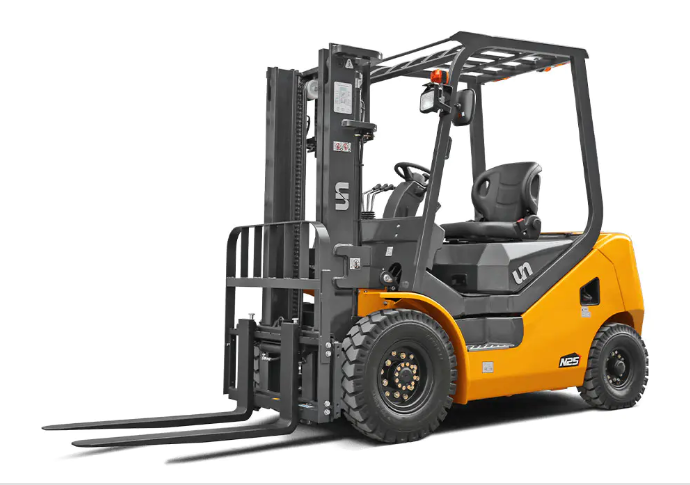Diesel forklifts are powerful industrial machines used for lifting and moving heavy loads in various industries such as warehouses, construction sites, ports, and logistics. They are powered by diesel engines, which provide excellent torque and fuel efficiency, making them suitable for heavy-duty applications.
Components of a Diesel Forklift
- A diesel forklift consists of several essential components that work together to provide reliable performance. These components include:
Engine - The diesel engine is the heart of the forklift, providing the power needed to lift heavy loads. Diesel engines are known for their excellent torque and fuel efficiency, making them ideal for heavy-duty applications.
- Transmission - The transmission system controls the forklift's speed and torque, ensuring smooth and precise control.
- Mast - The mast is the vertical component of the forklift that supports the load and raises and lowers it. The mast is made up of several components, including the lift cylinders, hydraulic hoses, and chains.
- Forks - The forks are the horizontal components of the forklift that support the load. Forks come in various lengths and widths, depending on the application.
- Tires - The tires are essential components of the forklift that provide traction and stability. Forklifts can be equipped with pneumatic, solid, or cushion tires, depending on the application.
Advantages of Diesel Forklifts
- Power and Torque - Diesel forklifts are known for their excellent power and torque, making them ideal for heavy-duty applications.
- Fuel Efficiency - Diesel engines are known for their excellent fuel efficiency, providing more power per unit of fuel compared to other types of engines.
- Low Maintenance - Diesel engines require less maintenance compared to other types of engines, reducing downtime and maintenance costs.
- Durability - Diesel forklifts are built to last, with rugged components that can withstand harsh working conditions.
- Versatility - Diesel forklifts can be used in various applications, from warehouses to construction sites, making them a versatile industrial machine.
Disadvantages of Diesel Forklifts
- Emissions - Diesel engines produce more emissions compared to other types of engines, which can be a concern for indoor applications.
- Noise - Diesel engines are known to produce more noise compared to other types of engines, which can be a concern in noise-sensitive environments.
- Initial Cost - Diesel forklifts can be more expensive compared to other types of forklifts, which can be a significant investment for some businesses.












 中文简体
中文简体 عربى
عربى Español
Español














